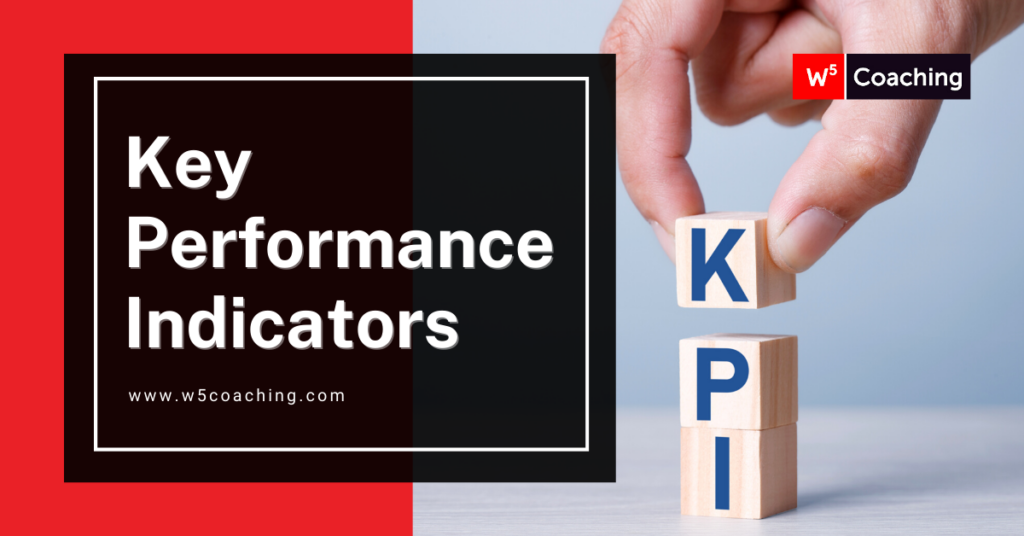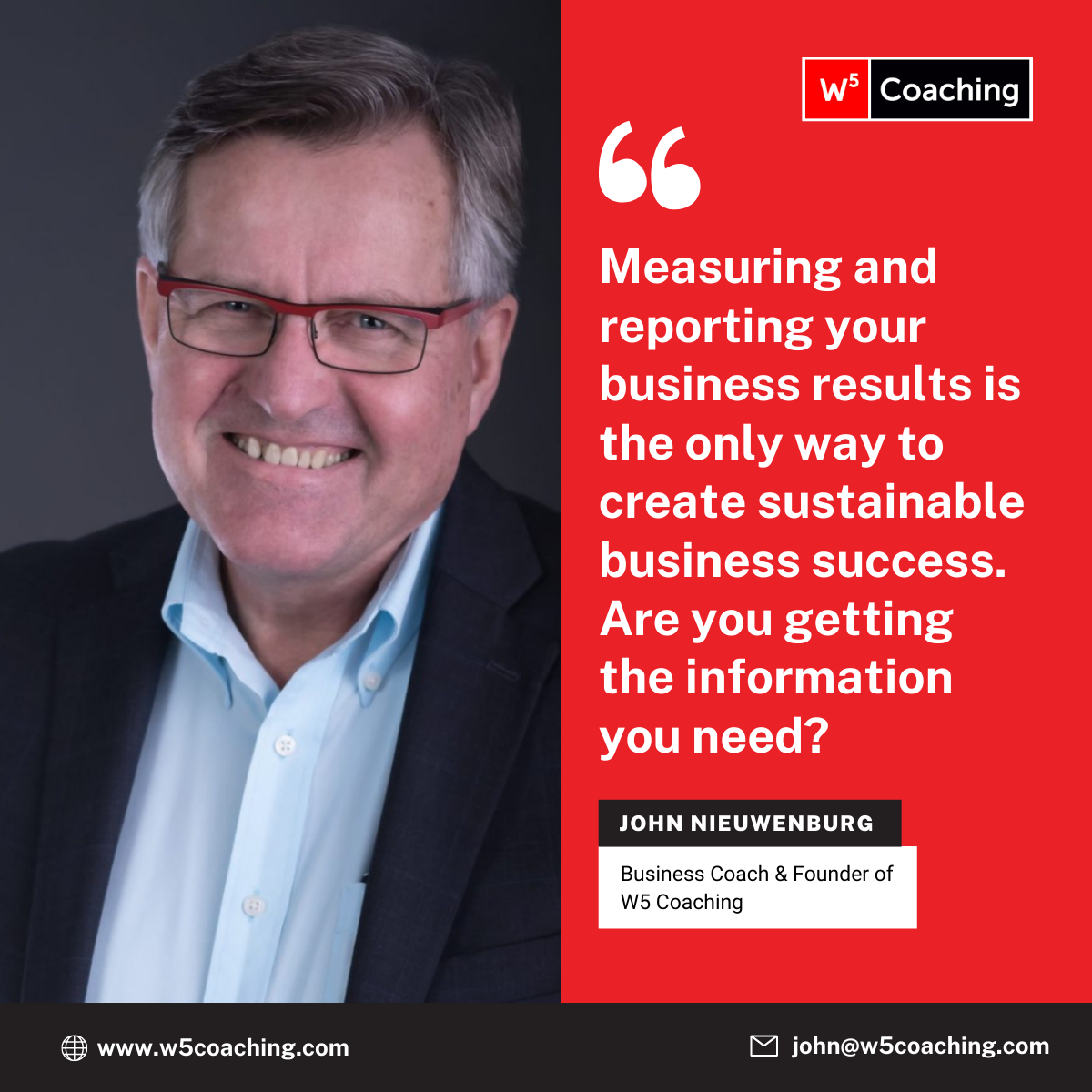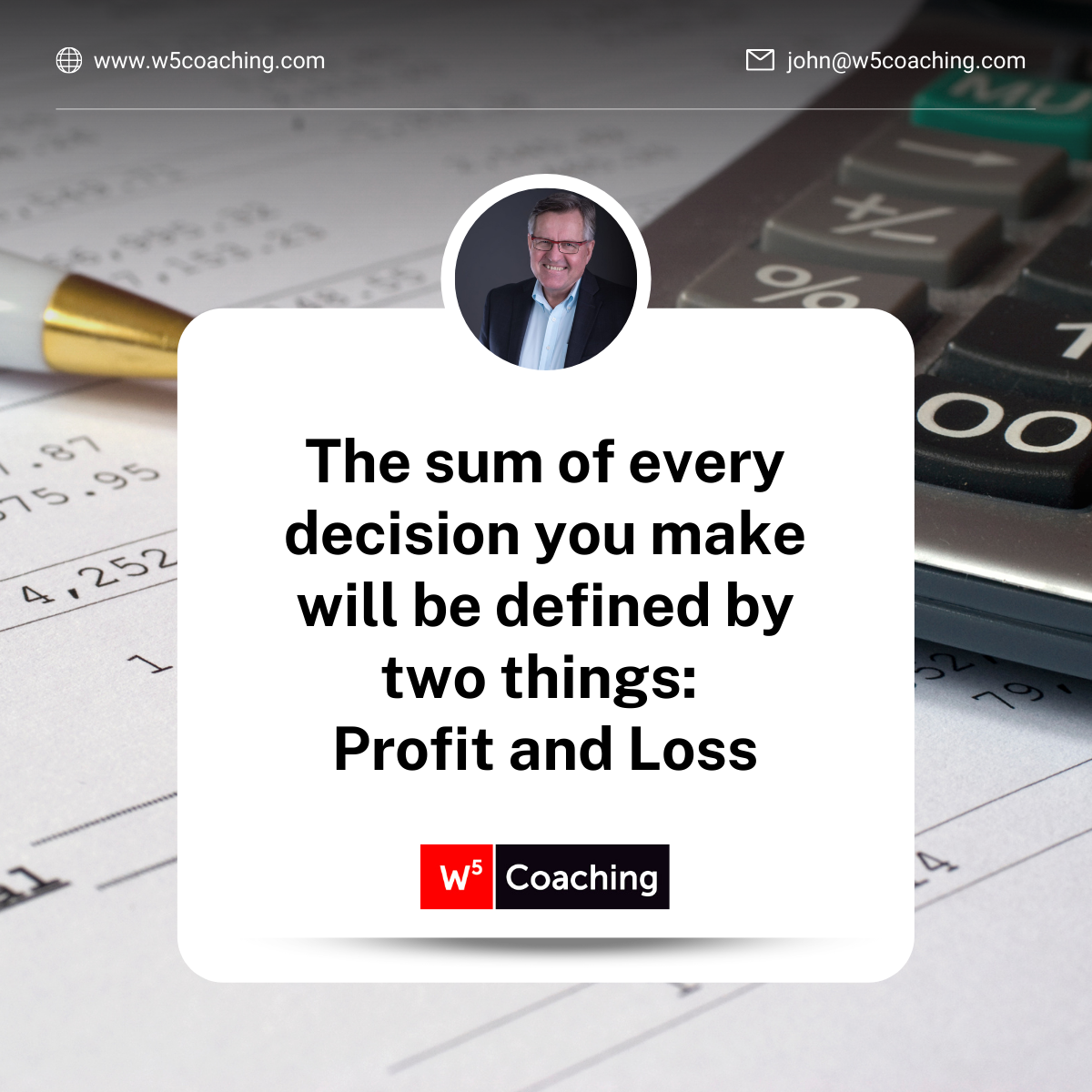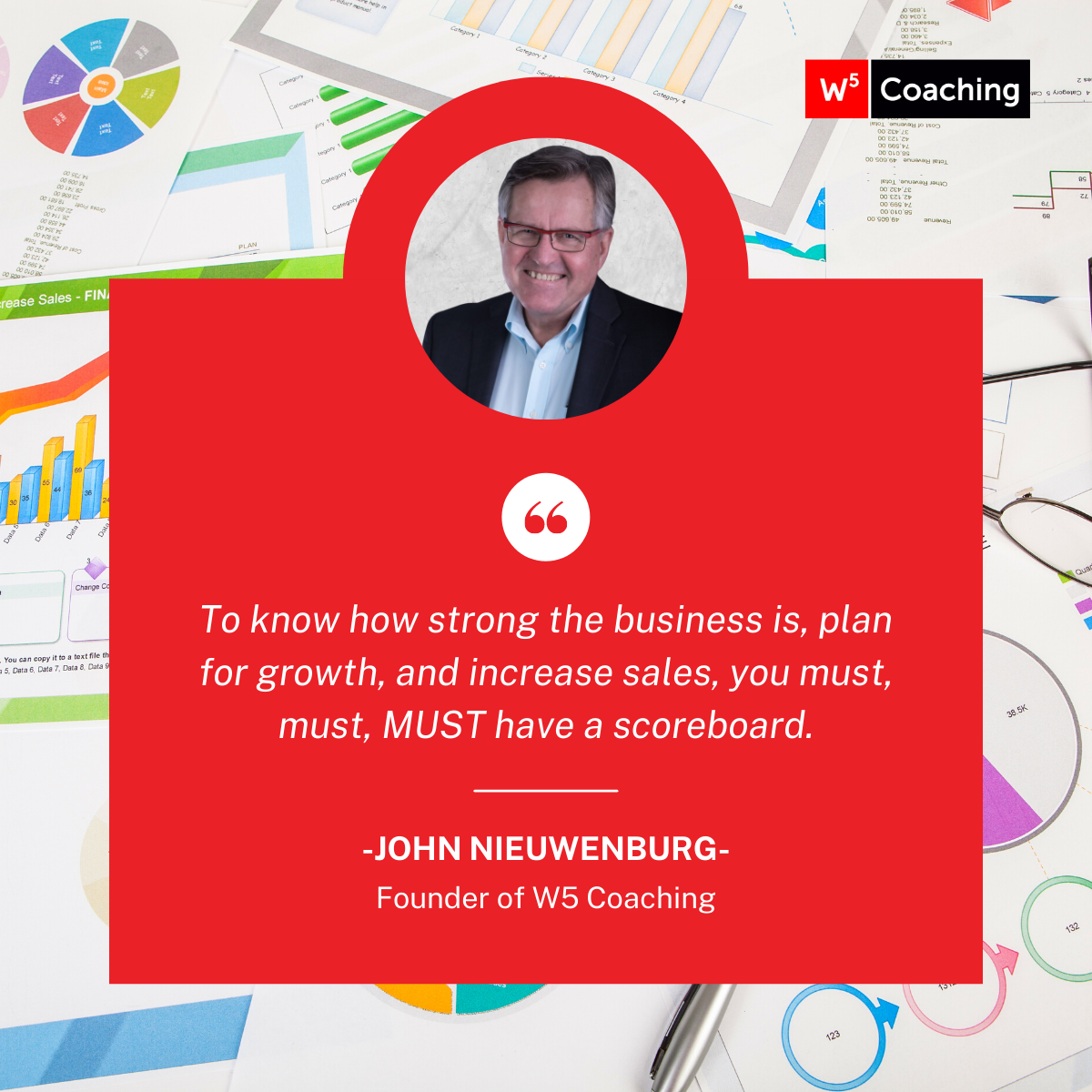Are you tracking the numbers that matter?

Why you need a scoreboard for your business
It was Warren Buffett who said, “If you can’t read the scoreboard, you don’t know the score. If you don’t know the score, you can’t tell the winners from the losers.”
Ask yourself the following questions.
- Am I receiving report cards from my accountants and bookkeepers?
- Am I looking at them? Do I know what they are telling me? Do I know which numbers are important?
- Can I make my business and financial decisions by looking at my report cards or am I flying by the seat of my pants?
- Which levers should I pull to improve my results?
If you replied, “no” to any of these statements, then consider revisiting your scoreboard.
Right now, it is missing points.
“If you can’t measure it, you can’t improve it. What gets measured gets managed.” – Peter Drucker
This is why you need to track Key Performance Indicators (KPIs).
What is a KPI?
 KPIs are measurable values that demonstrate how effectively a business is achieving its key objectives.
KPIs are measurable values that demonstrate how effectively a business is achieving its key objectives.
For example, if your business objective is to increase revenue, your KPI might be monthly sales growth.
Most financial reporting works like a rearview mirror – it tells you what has already happened.
While this information is useful for historical analysis, it doesn’t help you make decisions about the future.
That’s why it’s important to track leading indicators – KPIs that provide insight into future performance.
For example, if you’re trying to increase sales, you might track the number of leads generated each month, rather than just looking at revenue.
Here are examples of some of the KPIs you could track.
KPIs for sales
Revenue: This is the total amount of money your business generates from sales. Tracking revenue over time can help you identify trends and make adjustments to your sales strategy.
Sales Growth: This measures the percentage increase or decrease in sales over a specified period of time. A positive sales growth indicates that your business is growing and expanding.
Sales Conversion Rate: This is the percentage of leads or prospects that convert into paying customers. By tracking your conversion rate, you can identify areas of your sales funnel that need improvement.
Average Order Value (AOV): This measures the average dollar amount of each sale. Increasing your AOV can help boost revenue without necessarily increasing the number of sales.
Sales Cycle Length: This measures the amount of time it takes to close a sale, from initial contact to final purchase. By tracking the length of your sales cycle, you can identify bottlenecks and make adjustments to speed up the process.
Sales Pipeline Value: This is the total value of all deals in your sales pipeline. By tracking the value of your pipeline, you can forecast revenue and make strategic decisions about sales and marketing efforts.
KPIs for customer satisfaction
Net Promoter Score: This one-question survey asks how likely customers are to recommend your business to others. It’s based on a scale of 0 to 10, with customers who score 9 or 10 considered promoters and those who score 0 to 6 considered detractors.
Customer Retention Rate: How many customers continue to do business with your company over time? A high retention rate indicates that customers are satisfied with your products or services.
Churn Rate: This is the opposite of customer retention rate – it measures the rate at which customers stop doing business with your company. A high churn rate can indicate that customers are dissatisfied or that there are problems with your product or service.
Customer Lifetime Value (CLV): This metric measures the total value a customer brings to your business over their lifetime. By tracking CLV, businesses can prioritize customer retention and ensure they are delivering long-term value.
KPIs for overall business health
 Cash Flow: This measures the inflow and outflow of cash in your business. Tracking cash flow is critical for ensuring you have enough funds to pay bills, invest in growth, and weather economic downturns.
Cash Flow: This measures the inflow and outflow of cash in your business. Tracking cash flow is critical for ensuring you have enough funds to pay bills, invest in growth, and weather economic downturns.
Gross Profit Margin: This measures the percentage of revenue that remains after deducting the cost of goods sold. A high gross profit margin indicates that your business is generating revenue efficiently.
Operating Expenses Ratio: This measures the percentage of revenue that is used to cover operating expenses. A lower operating expense ratio is generally better, as it indicates that your business is operating efficiently.
Employee Turnover Rate: This measures the percentage of employees who leave your company over a specified period of time. High turnover rates can indicate problems with company culture or employee satisfaction.
Customer Acquisition Cost (CAC): This measures the cost of acquiring each new customer. By tracking CAC, you can ensure that you are spending marketing dollars efficiently and generating a positive return on investment.
Your calendar might be one of your best KPIs
I can tell exactly how my business is doing by comparing my actual calendar to my ideal calendar.
I believe this is also true for most business owners.
Does your calendar reflect your most important priorities?
If it does, you can predict that your business will get better.
If it doesn’t, you can be sure of trouble ahead.
How to choose the right KPIs for your business
Start with your business goals. Identify the objectives that are most important to your business and choose KPIs that align with those goals.
Keep it simple. Choose a small number of KPIs to focus on, rather than trying to track too many. If you have too many numbers to track, they become meaningless. Consider tracking no more than 3 numbers per department and keeping your reports to one page.
Create a dashboard or scorecard. This allows you to see all your KPIs in one place so that you can quickly identify trends or areas for improvement. You can create a dashboard using Excel or Google Sheets.
Make KPI tracking a regular part of your routine. This might mean reviewing your KPIs weekly, monthly, or quarterly – whatever makes sense for your business. Assign KPIs to employees and discuss them during your regular meetings.
Be proactive. Use your KPIs to identify potential issues before they become major problems. For example, if your sales have been decreasing for several months, it’s time to take a closer look at your lead generation strategy and make adjustments.
Make sure you have balance in your KPIs
 The Wells Fargo scandal is a prime example of what can go wrong when KPIs are not used appropriately. The bank had set ambitious sales targets for its employees, and many employees felt pressure to meet these targets or risk losing their jobs.
The Wells Fargo scandal is a prime example of what can go wrong when KPIs are not used appropriately. The bank had set ambitious sales targets for its employees, and many employees felt pressure to meet these targets or risk losing their jobs.
To meet these targets, some employees resorted to unethical behavior, such as creating fake accounts for customers without their knowledge or consent. The scandal ultimately led to billions of dollars in fines, loss of customer trust, and damage to the bank’s reputation.
Want to avoid this?
Choose your KPIs so they balance each other. For example, choose sales metrics and customer satisfaction metrics. (If Wells Fargo had been paying attention to customer satisfaction, they could have flagged the problem sooner.)
Make sure your team understands that the numbers are just a scorecard to measure progress towards a goal, not the goal itself.
Otherwise, there’s a risk that the focus becomes “hitting numbers at all costs”, which can lead to a culture of unethical behavior and negative consequences for the business.
Tracking KPIs is a crucial aspect of measuring the success of your business.
By choosing the right KPIs and monitoring them regularly, you create a windshield for your business that will help you stay on track with your goals, make data-driven decisions, and identify areas for improvement.
When you get this right, your leading indicators will tell you how your business is doing, so when you get your financial reports at the end of the month or quarter, you’ll be able to predict what they’ll say.
KPIs often sound simple in an article like this one, but appear more complicated when you try to implement them in your own business.
If you’d like some help choosing and setting up KPIs in your business, book a call with me to learn more about coaching.
As a business coach, I can help you identify the most important KPIs for your business and develop a strategy to track and analyze them effectively. You can book a complimentary call here: time with John.

Build a Self-Managing Company
How to build a business that runs smoothly, profitably, and (mostly) without you.
Feeling stressed out and overwhelmed with a business that is taking all your time - and not giving you enough in return?
Are you finding it challenging to hire the right team (and get them to do the right things)?
I wrote this little guide for you!
Enter your details below to receive your free copy!
